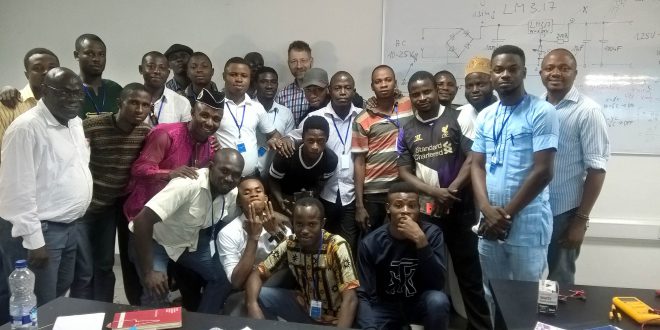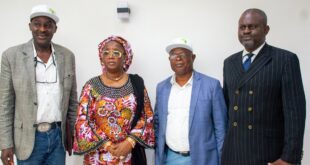The German government trained 10,000 Nigerian youths in vocational education between June 2016 and this month, an official of the German National Agency for International Cooperation (GIZ), Mr Horst Bauernfeind, has said.
He made this known on Sunday in Abeokuta, capital of Ogun State, at the closing ceremony of the programme.
Bauernfeind explained that the scheme was part of ongoing development cooperation between Nigeria and Germany, based on a 1974 bilateral agreement signed by the two countries.
He said that the project, organised by the GIZ and implemented under the Technical Vocational Education and Training (TEVET) programme, ran concurrently in Ogun and Plateau states for two years.
The GIZ official explained that 4,782 and 5218 youths were trained in Ogun and Plateau states respectively, adding that 39 per cent of the trained beneficiaries in the two states were women.
He recalled that his team had at the inception of the project in 2016, embarked on assessment tour of vocational centres and technical colleges in Ogun to identify training needs and subsequently developed programme strategies.
The German explained that the training had focused on the construction and agricultural sectors with modules developed for specific areas like soil testing, masonry, entrepreneurship and irrigation.
He explained that training guides have also been developed for the modules and would soon be distributed to partners and other stakeholders for sustainability.
“We believe that the training will be sustained after we might have pulled out because we have laid the necessary foundation by exposing the beneficiaries to the German entrepreneurship training model known as “Creating Competency for Competition (C3)”.
The National TEVET expert for Ogun, Mr Ibrahim Aliyu, in his address, said that the team faced the challenge of convincing the youths of the need to acquire vocational skills and to adapt to global best practices.
He said that the feedback from the field and the testimonies of the beneficiaries had, however, proven that the training had been quite impactful.
“When you consider the total participation, better skills acquired, improved income for beneficiaries and the total multiplier effects among other parameters, one can safely conclude that the programme has been successful,” he said.
He disclosed that the team had secured approval of the German government to run a second phase of the programme for another four years from July 2018 to June 2022.
Aliyu said the second phase of the training, which would still run in Ogun and Plateau states, would be expanded to cover more areas in the agricultural and construction sectors.
“We intend to collaborate with the Ogun Ministry of Women Affairs to develop training in interior decoration, paintings, designs and wall paper gluing.
“We have done the pilot scheme in Plateau state but we could not do it in Ogun for time constraint,” he said.
Aliyu, however, said that the team would also conduct assessment tour and also organised workshop for stakeholders to identify needs to determine specific areas for training.
NAN
 THE AFRICAN COURIER. Reporting Africa and its Diaspora! The African Courier is an international magazine published in Germany to report on Africa and the Diaspora African experience. The first issue of the bimonthly magazine appeared on the newsstands on 15 February 1998. The African Courier is a communication forum for European-African political, economic and cultural exchanges, and a voice for Africa in Europe.
THE AFRICAN COURIER. Reporting Africa and its Diaspora! The African Courier is an international magazine published in Germany to report on Africa and the Diaspora African experience. The first issue of the bimonthly magazine appeared on the newsstands on 15 February 1998. The African Courier is a communication forum for European-African political, economic and cultural exchanges, and a voice for Africa in Europe.


































